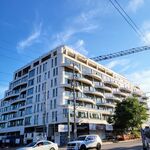Two articles from the Globe Today:
Councillors split over looming tax vote
JENNIFER LEWINGTON
CITY HALL BUREAU CHIEF
July 10, 2007
Undecided Toronto councillors find themselves in the political cross-hairs in the run-up to what's expected to be a close vote next Monday on Mayor David Miller's pitch for two new taxes.
The mayor's stalwarts think they have the votes to support the taxes - a levy of up to 2 per cent on property purchases and a $60 charge on motor vehicle ownership, which could raise $356-million a year for the cash-strapped city.
The right-leaning minority on council and interest groups opposed to the new taxes still think they have a shot - a long shot - at defeating the plan.
But both sides agree they need the swing voters - a group of up to 10 councillors - to win.
Councillor Bill Saundercook (Parkdale-High Park), among the undecided, says the arm-twisting from both sides has started.
Councillor Mark Grimes (Etobicoke-Lakeshore), who often sides with Mr. Miller, says he is leaning toward a no vote. "I am going to be very hard pressed to be supporting it," he said. "I don't think the stomach is out there [among the public for new taxes]."
Councillor Suzan Hall (Etobicoke North), another member of council's political middle, said "I am leaning to supporting it but have not made up my mind."
She supports the city's case for new revenues, but says her constituents are unhappy about new taxes. "I am caught between a rock and a hard place," she said.
Of the two proposed taxes, the land transfer levy is proving a harder sell than the proposed charge on motor vehicle registrations. Ms. Hall, among several undecided councillors, wants relief from the land transfer tax for first-time home buyers. (At present, only first-time buyers of newly built homes escape the tax.)
Councillor Doug Holyday (Etobicoke Centre), who wants the mayor to put off the tax measures until the fall at least, said the swing voters will be under pressure from angry constituents.
But even those who often vote against the mayor are split on his tax measures.
Councillor Karen Stintz (Eglinton-Lawrence) is firmly opposed to the land transfer tax but said she might support the motor-vehicle levy if the $56-million in forecast revenues go to the $300-million backlog on road repairs.
Home tax called 'a recipe for a slowing economy'
HEATHER SCOFFIELD
From Tuesday's Globe and Mail
July 10, 2007 at 4:34 AM EDT
There's no doubt Toronto Mayor David Miller had to do something major to avoid a fiscal disaster. Canada's largest city was heading toward bankruptcy without a new way to fund its expenses.
But the timing and the target of his proposal to slap a 2 per cent tax on home purchases are questionable.
The hefty tax increase comes at a time when real estate is driving consumption across the country, especially in Toronto. And it comes when the city's economy is precarious at best - as wages decline, wealth moves to the suburbs, and job quality is eroding.
"If [city] council was really concerned about making the city a great place to live, work and invest, it would not propose a significant increase in the cost of transacting in property," said Finn Poschmann, director of research at the C.D. Howe Institute. "The tax is utterly unconnected to the value of services the city provides, and in that sense is an all-but-impossible-to-defend lunge for money."
On the surface, Toronto's economy looks fairly strong. The Conference Board of Canada projects that the economy of the Toronto area will grow by a mediocre 2.5 per cent this year, but will soar over the next five years, becoming the top-growing metropolitan area in the country.
But the Conference Board, like most analyses, treats Toronto and its suburbs as one economic entity. The dynamics of the city and suburbs are quite different. In the suburbs, population is growing quickly, wages and salaries are surging and job growth is strong. The opposite is true of the city.
While up-to-date economic figures specific to the city of Toronto are hard to come by, research done by CIBC World Markets suggests that Torontonians are more inclined than most of the rest of the country to use their homes as automated banking machines, or ABMs, from which they can draw cash. Household debt ratios, which show the amount of debts compared to assets, are higher in Toronto than in any other city except Montreal, economist Benjamin Tal said.
And the borrowing activity has fuelled much of Toronto's consumer strength, he added.
"We estimate that at least one-third of this money goes toward spending. Clearly, credit has been important in supporting spending, no question about it."
In other words, Torontonians have seen the value of their homes rise steadily for the past few years, and used the rising value to borrow against their homes or take out lines of credit. They then went out and spent the money, driving the Toronto economy along even as manufacturing and export activity struggles.
Toronto is already dealing with high energy prices and rising interest rates, he said. Also, property taxes and user fees have already risen substantially, straining taxpayers. The gap between rich and poor is widening in the city, and it's bigger than most other cities, Mr. Tal added. Those forces, accompanied by a tax targeted at home sales "is a recipe for a slowing economy."
Despite the dangers, many analysts believe Toronto doesn't have much of a choice, and applaud Mr. Miller's decision to raise city revenues in an area where he has control, rather than rely on subsidies and transfers from other governments.
"There is a fundamental structural issue in city finances," Anne Golden, president of the Conference Board, argued. Toronto alone faces a $1.1-billion shortfall every year, the board's research shows, and it is constantly having to stitch together contingency plans to make ends meet. The home-purchases tax may stifle consumer spending marginally, Ms. Golden said, but at least it's a sustainable revenue stream for a city badly in need of funding.
"I believe that the biggest threat to the city of Toronto is the deterioration of services."
*****
Suburban magnet?
The proposed tax on property sales comes as the city's economy shows signs of declining employment and job quality compared to outlying municipalities.
EMPLOYMENT
Employment growth Unemployment rate
City of Toronto -0.1 7.25
Toronto CMA* 2 6.4%
WAGES
Median hourly wage; percentage change year-to-year, May, 2006 to May, 2007 (unadjusted)
City of Toronto -0.7%
Toronto CMA* 1.7%
NEW HOME CONSTRUCTION
Housing starts; percentage change year-to-year, May, 2006 to May, 2007
City of Toronto -87.4%
Toronto CMA* -38.4%
*The "Census Metropolitan Area "includes the City of Toronto plus the GTA, Bradford, Gwillimbury, New Tecumseth and Georgina.
SOURCES: CITY OF TORONTO ECONOMIC DEVELOPMENT DIVISION, STATISTICS CANADA




